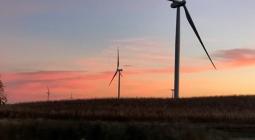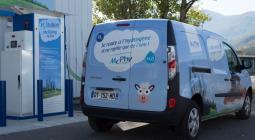Wind power is becoming cheaper as Hinkley Point C project goes over budget.

French power group EDF Energy recently announced that plans to start delivering electricity from 2025 from its nuclear power plant at Hinkley Point C, Somerset, may be delayed and the project is over budget by £2.5bn.
This brings the project’s budget to over £21bn in total. EDF cited difficult ground conditions saying the project was at risk of being delayed by 15 months.
Luckily, for UK taxpayers, these costs will be absorbed by the construction firms themselves, but it raises questions about the efficacy of nuclear power in the UK.
Six new nuclear plants are under consideration in the UK, but unlike Hinkley Point C, whose energy prices are locked in, any increases in project costs will directly affect the price consumers pay for energy.
These latest cost increases by EDF make future projects increasingly unlikely to go ahead, as nuclear power projects become less viable compared to alternative energy sources.
Offshore wind energy is now significantly more cost-effective
In September 2019, a raft of new offshore wind projects was announced for the UK. Offshore wind power has become increasingly attractive for the UK as an energy source because of the lack of restrictions on the size of turbines and the UK’s huge wind resources.
Of these new projects, the cheapest operator will provide power for as low as £40 per megawatt-hour, by comparison, Hinkley Point C has a locked-in energy price of £92.50. Offshore wind energy prices have plummeted by up to 30% in the last two years.
Onshore, offshore and solar are now the cheapest energy sources in the UK in terms of their final energy price for consumers, beating nuclear and traditional fossil fuel sources.
2 October 2019
POWER TECHNOLOGY




